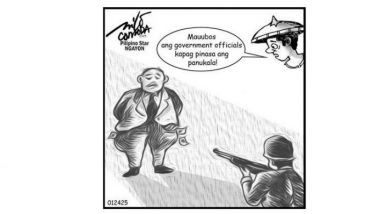Gov’t ICT program reaches Muslim, IP communities
Vital information on research and development breakthroughs achieved by the R&D sector is now benefiting Muslim and indigenous peoples’ (IP) communities through a government information and communication technology (ICT) program.
Such scientific headways are now finding their way to the people even in remote areas through the Farmers’ Information and Technology Service (FITS).
The FITS program was crafted by the Los Baños-based Department of Science and Technology-Philippine Council for Agriculture, Forestry and Natural Resources Research and Development (DOST-PCARRD) to bring information and technologies in agriculture and natural resources within the reach of farmers, entrepreneurs, trader, processors, and other stakeholders in agriculture and natural resources.
Now called Techno Pinoy, FITS is a component of PCARRD’s banner program on technology transfer and R&D utilization called Techno Gabay.
The concept of FITS is to house under one roof (one-stop shop) the ICT services that provide the farming sector with quick access to agricultural information services.
Equipped with ICT applications, databases, and other interventions, a FITS center provides technology information in print, videotapes, and database formats; access to global information via the Internet; sale of reference information materials; exhibit of new technologies; and production and dissemination of information, education, and communication materials.
Since the program was launched in 1997, 260 FITS centers have been established in strategic places from Batanes to Basilan, according to Dr. Bessie Burgos, director of PCARRD’s Technology Outreach and Promotion Division.
The FITS centers are supported by farmer-scientists (magsasaka-siyentista), who are successful farmers whose farms are showcases of “best practices.” These farmers share their technologies and indigenous practices with other tillers.
Cognizant of the dearth of vital R&D and S&T information in places where indigenous peoples live, DOST-PCARRD has prioritized the establishment of FITS centers near these communities.
The first FITS center in the
Across the country, FITS centers have been put up in IP domains for the benefit of Acta, Agta, Bugkalot, Dumagat, Mangyan, Tagbanua, Mandaya, Manobo, Subanon, Bagobo, Talaandig, Bukidnon and other ethnic groups.
The first FITS center in the Autonomous Region in Muslim Mindanao was put up in Lamitan, Basilan on March 19 last year.
The Lamitan FITS was launched by the Western Mindanao Agriculture and Resources Research and Development Consortium, one of the 14 government regional R&D consortia coordinated by PCARRD.
“The Techno Gabay program of PCARRD is now creating waves in developing community enterprises in remote places, including Moro National Liberation Front (MNLF) areas,” said PCARRD’s Dr. Arturo Argañosa, who has been visiting the FITS centers to assess the strides of these information facilities.
Because of Techno Gabay, Argañosa said many MNLF fighters have virtually traded their guns for the plow.
Dr. Cayetano Pomares, regional Techno Gabay coordinator of the Cotabato Agriculture and Resources Research and Development Consortium, also reported that the Autonomous Tri-People of Mindanao Region (ATMR) has set up S&T-based farms and adopted technologies showcased in
ATMR chairman Jimmy Suzada also volunteered that they would venture into vermiculture (earthworm raising) to produce fertilizer for their organic farming.
On the whole, the Techno Gabay-Techno Pinoy program has been of great help to people in the countryside, including those in IP domains, PCARRD said.
- Latest



























